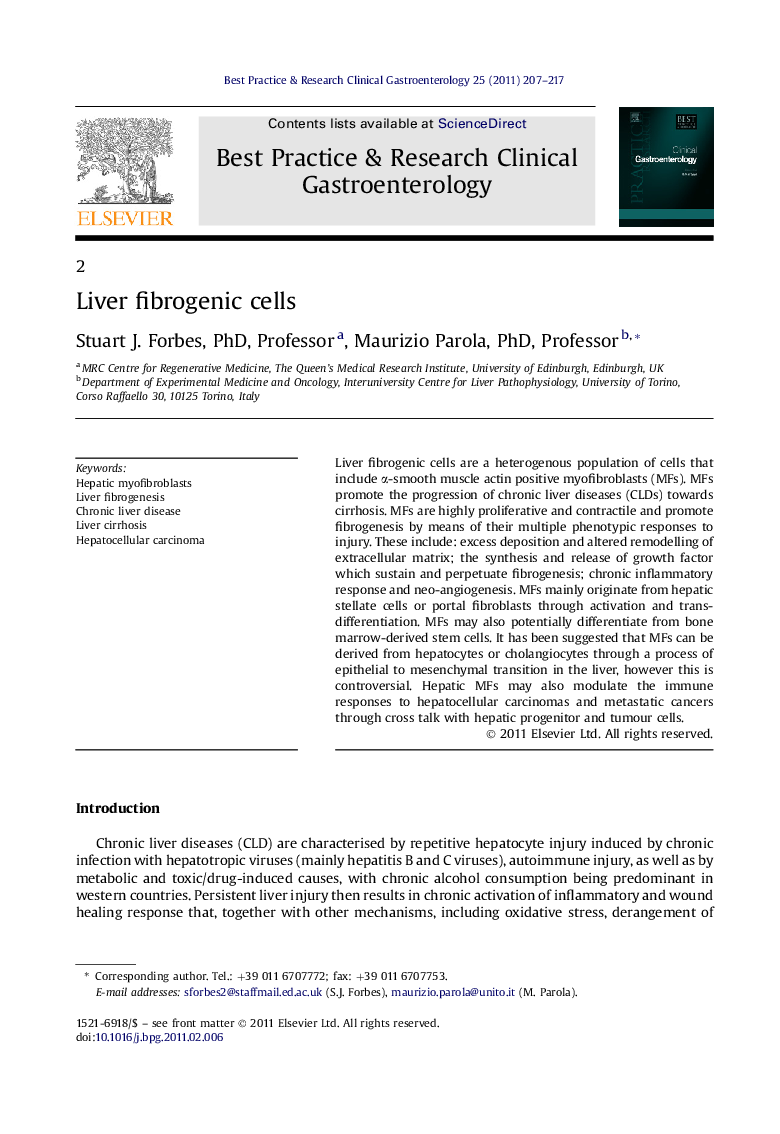| Article ID | Journal | Published Year | Pages | File Type |
|---|---|---|---|---|
| 6086523 | Best Practice & Research Clinical Gastroenterology | 2011 | 11 Pages |
Liver fibrogenic cells are a heterogenous population of cells that include α-smooth muscle actin positive myofibroblasts (MFs). MFs promote the progression of chronic liver diseases (CLDs) towards cirrhosis. MFs are highly proliferative and contractile and promote fibrogenesis by means of their multiple phenotypic responses to injury. These include: excess deposition and altered remodelling of extracellular matrix; the synthesis and release of growth factor which sustain and perpetuate fibrogenesis; chronic inflammatory response and neo-angiogenesis. MFs mainly originate from hepatic stellate cells or portal fibroblasts through activation and transdifferentiation. MFs may also potentially differentiate from bone marrow-derived stem cells. It has been suggested that MFs can be derived from hepatocytes or cholangiocytes through a process of epithelial to mesenchymal transition in the liver, however this is controversial. Hepatic MFs may also modulate the immune responses to hepatocellular carcinomas and metastatic cancers through cross talk with hepatic progenitor and tumour cells.
